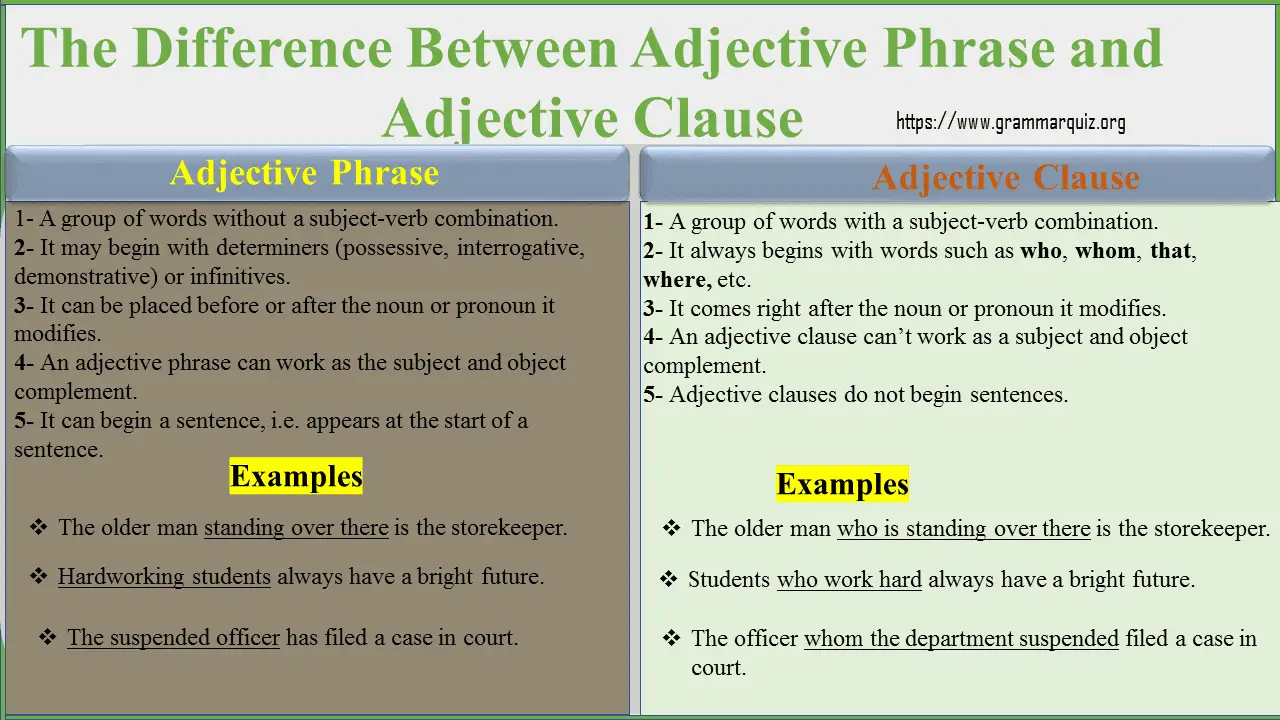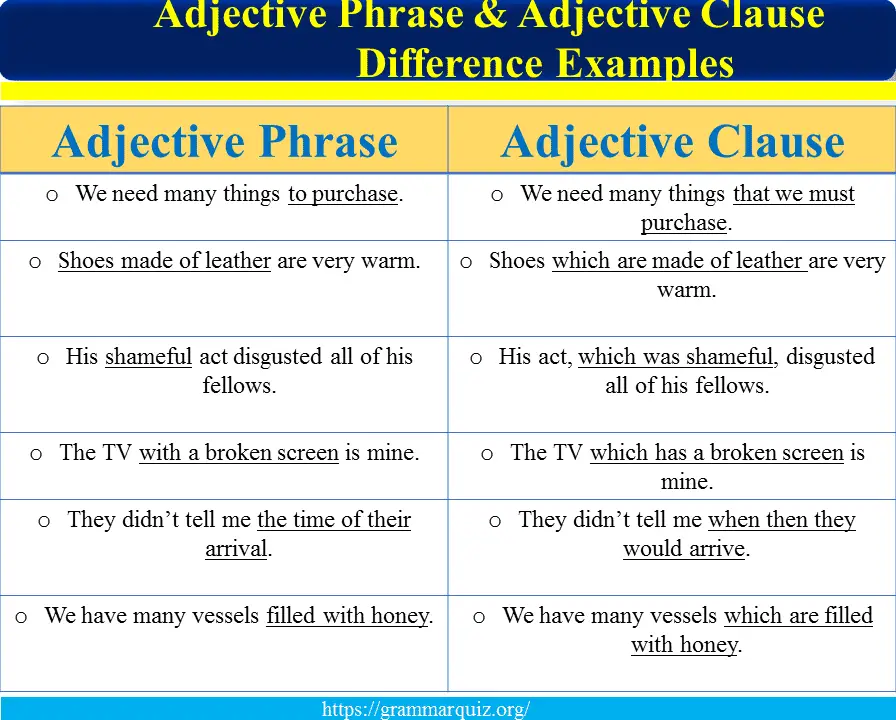Adjective Phrase and Adjective Clause Difference
To understand the difference between adjective phrases and adjective clauses, we need to define them first.
Must Learn: Difference Between Phrase and Clause
First, look at the definition of an adjective and its function to make it easier for you to understand the difference between an adjective phrase and an adjective clause.

Adjective: An adjective describes things that usually appear before a noun or a pronoun in a sentence. The noun described by an adjective can be people, place, idea, or thing.
Example: Today is the longest day of this year.
The word longest in this sentence is an adjective that modifies the noun day.
Adjective Phrase: A group of words without a subject-verb combination that does the work of an adjective is called an adjective phrase.
Example: Today is the day of greatest length.
In this sentence, ‘of greatest length’ is the group of words performing the same function as a single adjective. It does not compose its own subject and predicate(verb). Therefore, it is an adjective phrase.
Adjective Clause: An adjective clause follows nouns; it provides information about the noun it follows. It has its own subject and predicate and does the work of a single adjective.
Example: I don’t remember the day when l was born.
The group of words ‘when I was born’ does the same function as the adjective and adjective phrase did in the above sentences and contains the subject I and verb was born. Therefore, this group of words is an adjective clause.
Note: Adjective clause is also known as a relative clause.
Both an adjective phrase and an adjective clause do the work of an adjective, i.e. modify a noun, and both always appear as part of a large sentence. The following table presents some key differences between adjective phrases and adjective clauses.
| Adjective Phrase | Adjective Clause |
| A group of words without a subject-verb combination. | A group of words with a subject-verb combination. |
| It may begin with determiners (possessive, interrogative, demonstrative) or infinitives. | It always begins with words such as who, whom, that, where, etc. |
| It can be placed before or after the noun or pronoun it modifies. | It comes right after the noun or pronoun it modifies. |
| An adjective phrase can work as the subject and object complement. | An adjective clause can’t work as a subject and object complement. |
| It can begin a sentence, i.e. appears at the start of a sentence. | Adjective clauses do not begin sentences. |
In the following table, each adjective phrase is turned into an adjective clause that clarifies their difference.
| Adjective Phrase | Adjective Clause |
| The robber of the house was killed by someone. | The man who had robbed the house was killed by someone. |
| The older man standing over there is the storekeeper. | The older man who is standing over there is the storekeeper. |
| We need many things to purchase. | We need many things that we must purchase. |
| Hardworking students always have a bright future. | Students who work hard always have a bright future. |
| Shoes made of leather are very warm. | Shoes which are made of leather are very warm. |
| His shameful act disgusted all of his fellows. | His act, which was shameful, disgusted all of his fellows. |
| The watch bought by my dad was costly. | The watch that my dad bought was costly. |
| Students getting high grades will get awards. | Students who get high grades will get awards. |
| The suspended officer has filed a case in court. | The officer whom the department suspended filed a case in court. |
| The TV with a broken screen is mine. | The TV which has a broken screen is mine. |
| They didn’t tell me the time of their arrival. | They didn’t tell me when they would arrive. |
| We have many vessels filled with honey. | We have many vessels which are filled with honey. |
| The man sitting near me is my uncle. | The man who sits near me is my uncle. |
